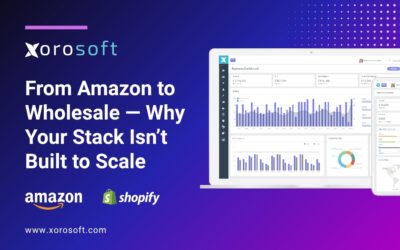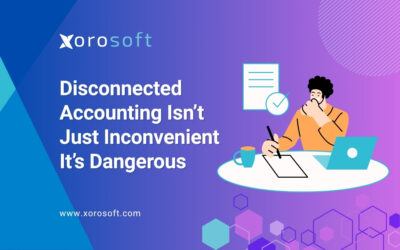
Introduction to ERP systems and their importance in business
As businesses strive for efficient and streamlined operations, Enterprise Resource Planning (ERP) systems have become an integral part of their strategy. An ERP system is a centralized software solution that integrates different departments and functions within an organization, providing real-time data and enabling data-driven decision-making. The ERP system acts as a backbone for businesses, helping them manage their resources, improve efficiency, and enhance overall productivity.
Understanding the need for measuring the effectiveness of ERP system implementation
Implementing an ERP system is a significant investment for any organization. It involves not only the cost of the software but also the time and effort required for implementation and training. To ensure the success of the implementation, it is crucial to measure the effectiveness of the ERP system. Measuring effectiveness helps in identifying areas for improvement, optimizing system usage, and aligning the system with the organization’s goals and objectives.
Key Performance Indicators (KPIs) for measuring ERP system effectiveness
Key Performance Indicators (KPIs) are quantifiable metrics that organizations use to evaluate their progress towards specific goals. When it comes to measuring the effectiveness of ERP system implementation, several KPIs can provide valuable insights. Let’s explore some of the KPIs related to ERP system functionality and features, integration and data management, and performance and efficiency.
KPIs related to ERP system functionality and features
- User Adoption Rate: This KPI measures the percentage of employees who actively use the ERP system. A high user adoption rate indicates that the system is effectively meeting the needs of the users and is user-friendly.
- System Availability: This KPI measures the uptime of the ERP system. It reflects the system’s reliability and ensures that it is accessible to users whenever they need it.
- Feature Utilization: This KPI evaluates the extent to which different features of the ERP system are utilized by the users. It helps in identifying underutilized features that can be further leveraged to enhance system effectiveness.
KPIs related to ERP system integration and data management
- Data Accuracy: This KPI measures the accuracy of data entered into the ERP system. It ensures that the system provides reliable and trustworthy information for decision-making.
- Integration Efficiency: This KPI evaluates how efficiently the ERP system integrates with other software applications used within the organization. It measures the speed and accuracy of data transfer between systems.
- Data Security: This KPI assesses the security measures implemented within the ERP system to protect sensitive data from unauthorized access or breaches.
KPIs related to ERP system performance and efficiency
- Response Time: This KPI measures the time taken by the ERP system to respond to user requests. A low response time indicates high system performance and efficiency.
- System Downtime: This KPI measures the amount of time the ERP system is unavailable or experiences disruptions. Minimizing system downtime ensures uninterrupted operations and productivity.
- Process Efficiency: This KPI evaluates the efficiency of business processes supported by the ERP system. It measures factors such as cycle time, resource utilization, and cost savings achieved through process automation.
Case study: Measuring the effectiveness of Xorosoft ERP implementation
In a recent case study, we examined the effectiveness of Xorosoft ERP implementation in a manufacturing company. By utilizing the KPIs mentioned earlier, the company was able to assess the impact and success of the ERP system implementation. The user adoption rate was consistently high, indicating that the system was well-received by employees. Data accuracy improved significantly, leading to more reliable decision-making. The integration efficiency of the ERP system with other software applications streamlined processes and reduced duplication of efforts. Overall, the KPIs helped the company measure the effectiveness of the Xorosoft ERP implementation and identify areas for continuous improvement.
Using KPIs to assess the effectiveness of an Inventory Management System within an ERP
An Inventory Management System is a critical component of an ERP system, enabling businesses to effectively manage their inventory levels, track stock movements, and optimize supply chain processes. To assess the effectiveness of an Inventory Management System within an ERP, specific KPIs can be utilized.
- Inventory Accuracy: This KPI measures the accuracy of inventory records in the system compared to the actual physical inventory. It helps in identifying discrepancies and maintaining an accurate inventory count.
- Order Fulfillment Cycle Time: This KPI measures the time taken to fulfill customer orders, starting from order placement to delivery. A shorter cycle time indicates efficient inventory management and faster order processing.
- Stock Turnover Ratio: This KPI calculates the number of times inventory is sold and replaced within a specific period. A higher stock turnover ratio indicates effective inventory management and reduced holding costs.
By monitoring these KPIs, businesses can gain insights into the performance and effectiveness of their Inventory Management System within the ERP, enabling them to make data-driven decisions and continuously improve their inventory management processes.
Using KPIs to assess the effectiveness of Accounting features within an ERP
The Accounting module within an ERP system plays a crucial role in managing financial transactions, tracking expenses, and generating accurate financial reports. To assess the effectiveness of the Accounting features within an ERP, the following KPIs can be utilized.
- Accounts Receivable Turnover: This KPI measures how quickly a business collects payments from its customers. A higher turnover ratio indicates effective credit management and improved cash flow.
- Accounts Payable Turnover: This KPI measures how quickly a business pays its suppliers. A higher turnover ratio indicates efficient management of payables and favorable relationships with suppliers.
- Financial Reporting Accuracy: This KPI measures the accuracy and timeliness of financial reports generated by the ERP system. It ensures that financial information is reliable and helps stakeholders make informed decisions.
By monitoring these KPIs, businesses can evaluate the effectiveness of the Accounting features within their ERP system, enabling them to maintain financial health, streamline processes, and comply with regulatory requirements.
The role of Xorosoft ERP in achieving key business goals
Xorosoft ERP provides a comprehensive solution for businesses looking to optimize their operations, enhance efficiency, and achieve key business goals. By leveraging the KPIs mentioned earlier, businesses can assess the effectiveness of Xorosoft ERP in achieving their specific goals.
Whether it is streamlining processes, improving productivity, or enhancing customer satisfaction, Xorosoft ERP offers the functionality and features required to drive success. By measuring KPIs related to user adoption, system availability, data accuracy, response time, and process efficiency, businesses can unlock the full potential of Xorosoft ERP and maximize their return on investment.
Conclusion: Leveraging KPIs to unlock success in ERP system implementation
Measuring the effectiveness of ERP system implementation is crucial for businesses to optimize their processes, improve efficiency, and achieve their goals. By utilizing the right KPIs, businesses can assess the impact of the ERP system on different aspects such as functionality, integration, performance, inventory management, and accounting. The case study of Xorosoft ERP implementation highlights the effectiveness of KPIs in evaluating system success.
To unlock success in ERP system implementation, businesses are encouraged to book a demo with Xorosoft. By understanding the specific needs and goals of your organization, Xorosoft can provide a tailored solution that aligns with your business objectives and helps you achieve optimum results.
Book a Demo with Xorosoft today and unlock the full potential of your ERP system implementation!









